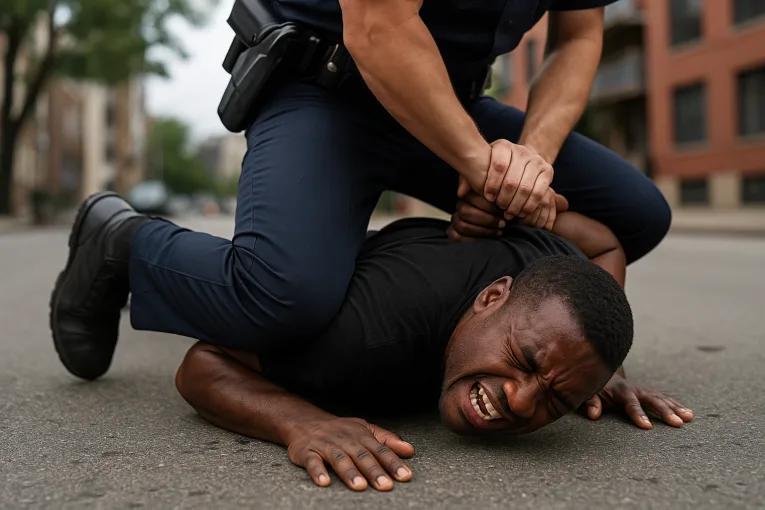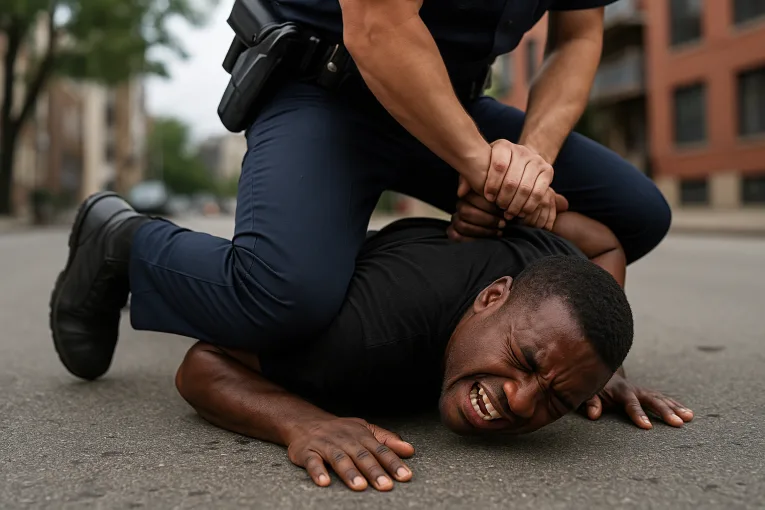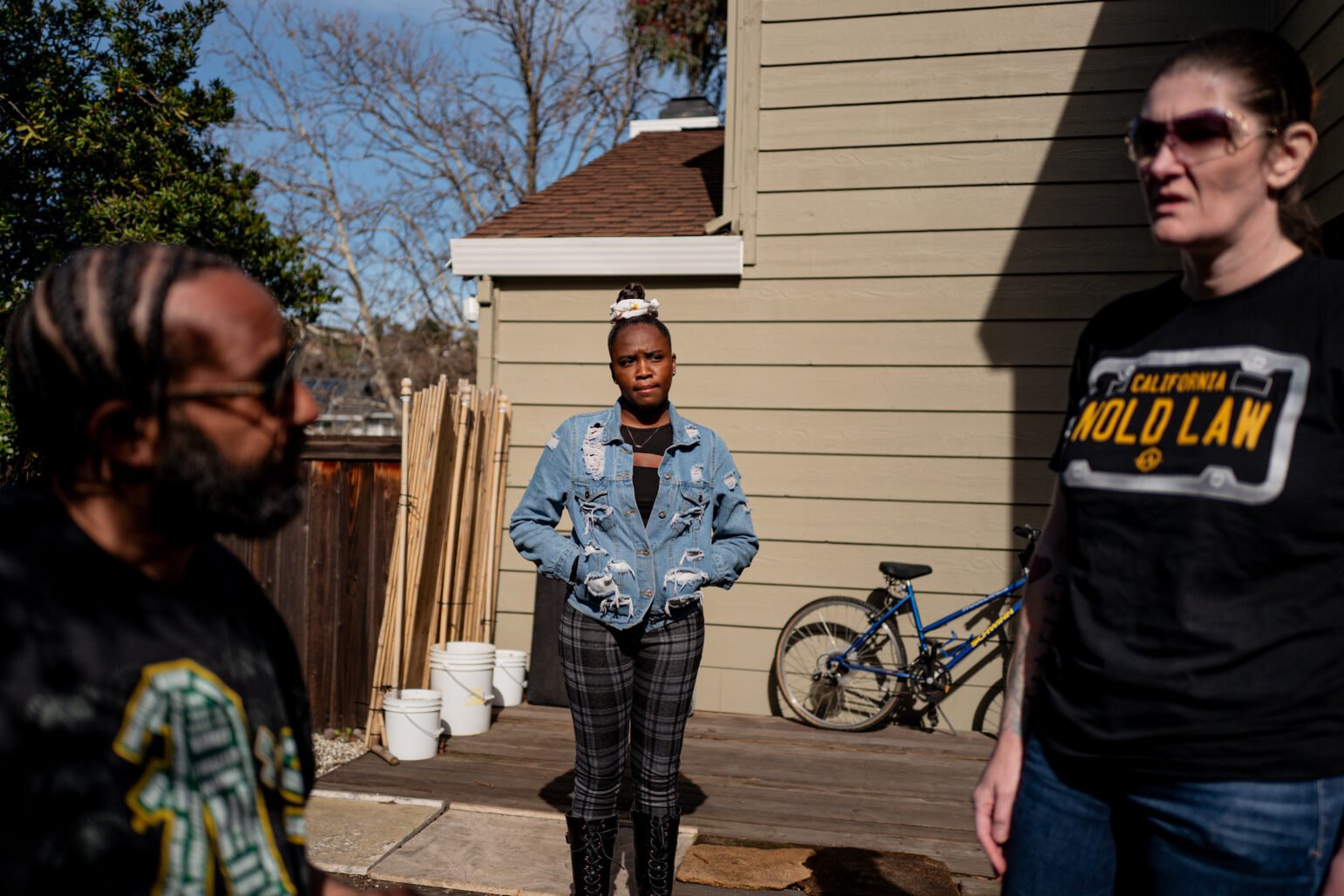

In a decision that marks a devastating setback to civil rights enforcement of police misconduct, the Trump administration has dismantled key federal oversight mechanisms meant to hold police departments accountable for unconstitutional conduct.
The Department of Justice’s abandonment of consent decrees and investigations—many of them already well underway—sends a dangerous message to communities across the country: that even after the federal government documents widespread police abuse, no structural change will be enforced.
Even more troubling is the celebration of this action by the Peace Officers Research Association of California (PORAC), the state’s most powerful police union, which applauded the decision as a victory for “local control” and “effective policing.”
But what this really reveals is law enforcement’s deep-rooted resistance to accountability and its contempt for the very reforms the public has demanded in the wake of mass protest and damning federal investigations.
PORAC’s press release makes their priorities clear. They commend the DOJ for rolling back consent decrees and retracting investigative findings that confirmed widespread civil rights violations in departments across the country.
These are not minor policy disagreements—they involve some of the most high-profile and troubling cases in recent memory, including the police killings of George Floyd in Minneapolis and Breonna Taylor in Louisville.
The federal government spent years investigating these departments. They reviewed thousands of documents, body-worn camera footage, and witness testimony. They concluded, based on overwhelming evidence, that these police departments engaged in practices that systematically violated the constitutional rights of their residents. And now, under this administration, those findings are being swept aside.
PORAC would have us believe that consent decrees are part of some overreaching federal agenda to “micromanage” local policing, a “blunt hammer” that drains community resources and bogs officers down in red tape.
They trot out statistics to claim that crime surged in cities like Seattle and Albuquerque after consent decrees were imposed, ignoring the multitude of other factors that affect crime rates.
This rhetorical sleight of hand masks the real purpose of consent decrees: to remedy deeply entrenched civil rights violations when local governments either cannot or will not take corrective action on their own.
The entire premise of federal oversight is based on the understanding that constitutional protections must not depend on ZIP code or mayoral will. When police officers beat, kill, or terrorize people with impunity—and local leadership enables or ignores it—the federal government has both the authority and the moral obligation to intervene.
The Trump DOJ’s decision to terminate these decrees and halt pending investigations is not based on the evidence collected by the Civil Rights Division. It is not based on community input or lived experience. It is a political act designed to curry favor with police unions and their allies while turning a blind eye to the communities most affected by systemic violence.
And PORAC, which represents over 83,000 officers in California, didn’t just welcome this decision—they lobbied for it. They boasted in their press release that they had personally met with DOJ officials and lawmakers in Washington to push for this outcome. They are proud of having helped dismantle one of the few remaining tools available to fight patterns of abuse in law enforcement.
This is not a good faith disagreement over policy. This is a demonstration of the extent to which powerful law enforcement organizations like PORAC will go to defend the status quo, even when that status quo means violating people’s civil rights.
While communities mourn the lives lost to police violence and demand structural reform, PORAC’s leaders are flying to Washington to lobby against transparency, oversight, and justice. They claim to support “targeted prosecutions” and “local reforms,” but in practice, they oppose almost every effort to constrain police discretion or impose independent accountability mechanisms. Their preferred model is one where police investigate themselves, discipline is rare, and outside scrutiny is painted as anti-police extremism.
The idea that federal consent decrees are too costly or demoralizing to officers ignores the human cost of unchecked policing. It ignores the families destroyed by preventable killings, the neighborhoods terrorized by excessive force, the economic and psychological trauma inflicted on communities of color, and the generations of distrust that follow.
No dollar amount spent on oversight compares to the toll of a justice system that routinely fails the people it purports to serve. And no claim about officer morale should override the fundamental imperative to uphold civil rights.
Civil rights organizations across the country have condemned the DOJ’s retreat. The ACLU has launched the Seven States Safety Campaign, demanding public records from police departments in states where the Biden-era DOJ found rampant abuses.
These include Memphis, where officers punched and kicked restrained individuals; Phoenix, where police shot tasers and guns at incapacitated people; and Minneapolis, where officers continued to use neck restraints years after they were supposedly banned.
These findings were rooted in overwhelming evidence and confirmed the lived experiences of thousands of people who have been brutalized, harassed, and dehumanized by their own police departments.
Groups like The Leadership Conference on Civil and Human Rights and the ACLU are stepping in to fill the void left by a Justice Department that has abandoned its mission.
But these efforts, however important, are no substitute for robust federal enforcement. The abandonment of consent decrees tells abusive departments that there will be no consequences for violating the law, so long as they have the political clout to push back.
It leaves vulnerable communities with no recourse but to rely on underfunded civil rights organizations or slow-moving state litigation. And it reinforces a system in which law enforcement remains above the very laws they are sworn to uphold.
There is a name for a government that shields its enforcers from oversight, even in the face of overwhelming evidence of misconduct.and that name is not democracy.
This is what happens when a nation refuses to learn from its own trauma. When mass protests, police killings, federal investigations, and public outcry still cannot produce change—when instead they are met with rollback and retaliation—we are not witnessing reform but rather backlash.
PORAC’s celebration of this retreat is more than a political statement. It is an indictment of a law enforcement culture that has failed to confront its own abuses.
If officers and departments truly cared about trust, legitimacy, and community safety, they would welcome oversight they would not cheer when it is dismantled. Nor would they deny the mountain of evidence that shows just how widespread the problem is.
And they would not mistake silence for peace.
History will not look kindly on those who applauded when federal oversight was gutted. It will remember who stood for accountability and who stood in the way. We know which side PORAC chose, but the rest of us must choose differently.
Categories:
Breaking News Everyday Injustice Opinion
Tags:
ACLU Breonna Taylor Consent Decrees George Floyd Minneapolis Police Department Police Brutality Police Misconduct The Civil Rights Division The federal government The Seven States Safety Campaign Trump Administration



